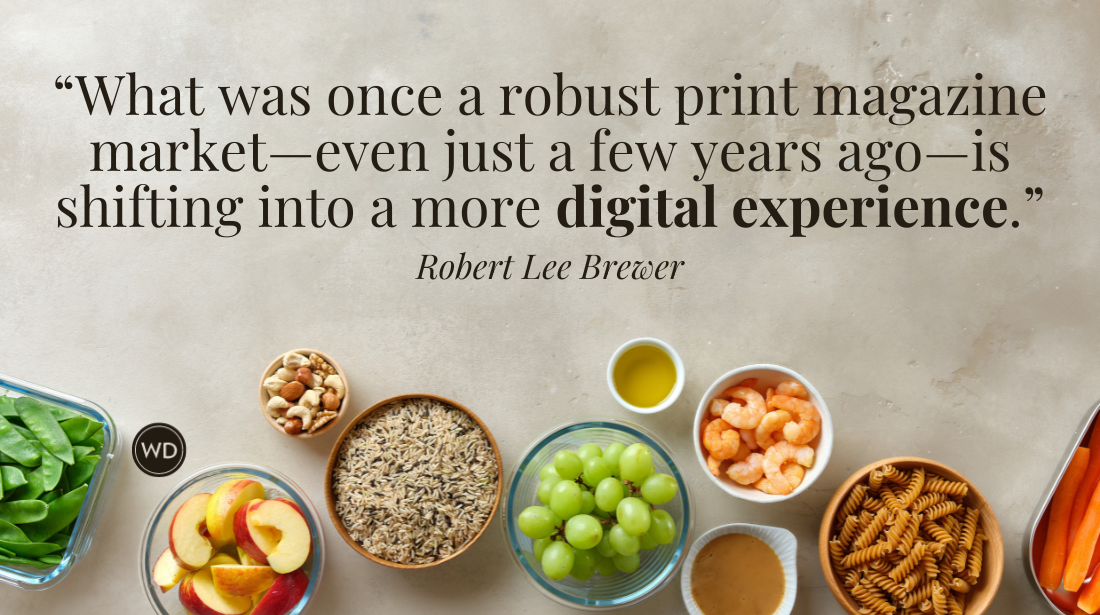Should You Blog? And If So, What Are Best Practices?
Photo credit: Laughing Squid More writers are blogging than ever. And if you’re not blogging already, you’ve probably considered it. Recently, a writer asked me via Facebook about blogging. She…
More writers are blogging than ever. And if you're not blogging already, you've probably considered it. Recently, a writer asked me via Facebook about blogging.
She said:
[It is] my impression that blogs related to writing are primarily written by people with expertise in their field and who have valuable advice and connections within the industry. Now, however, I am checking around and I see that many writers, even writers who are unpublished -- and some who appear very far from being published -- have blogs, also where they discuss writing and their completed works and/or works in progress. These people generally have direct links to their blogs that become available when they sign their name (or their blog name) when commenting on another blog. So, I suppose they are doing some marketing for themselves.
So, my question is: Should I have a blog?
This writer had some serious reservations about starting a blog, and here's how I answered her questions.
1. I don't feel like I have much in the way of valuable advice. What kind of advice do I have to dispense?
For aspiring writers (especially novelists), it often comes down to a matter of voice—an engaging voice, humorous insights, or a unique perspective to bring to the table.
Sometimes you may have specific advice, sometimes not. For many aspiring writers who blog, it's about a community—writers who are learning from one another. It helps if you can identify what about your experience sets you apart, but this insight may not occur for 6 months or more of blogging.
Don't assume your blog should be specifically about writing. It could be about whatever sets you apart, makes you unique. The writing life can simply be an accent.
2. One person mentioned on his blog that a literary agent looked at his blog, saw his complaints about the issues remaining with his book, and decided not to look at his book. I suppose it seems obvious that you shouldn't write negative things about your work on your blog, but to me this seems like one example of potentially many examples of why a BAD blog could be worse than no blog at all.
There's always that risk that an editor/agent will be turned off by your site or blog. Frankly, though, if you're sending out material knowing there are still issues to resolve, you should be getting rejected. (Never send material out that isn't as final as you can make it!)
If an agent/editor is turned off by your site/blog, they may not like your style or voice, regardless of content or professionalism. If your blog is a good representation of who you are as a writer (and most blogs are), then it would be like worrying about a potential mate who decides not to start a relationship with you because he/she doesn't like your personality. Saves you both some trouble, right?
3. I know nothing about blogging, so I feel my chances of writing a bad blog are sufficiently high that I should be concerned.
Maybe you worry too much. This could a unique angle to your blog.
4. Since blogs need to be updated on a regular basis and you have to respond to your commentors, I feel like a blog could be a significant time sink. I just wonder if my time isn't better spent working on my next book.
This is a legitimate concern, but only because you would fall in love with blogging and community building and not do the real writing.
The administrative part of the blog (design/setup/posting/blahblahblah) takes no time at all (minutes). Many people fall into the trap of widget-y improvements, or the fun tinkering, the stuff that you do to avoid writing.
You should decide upfront how much time you want to spend (or can afford), e.g., I will post once a week, the post will be about 500 words. It can actually be a good warm-up exercise.
Try not to plan this out too much or wait to act because you feel lots of preparation is needed. Overplanning or overthinking is somewhat antithetical to today's blogging practice (except for professional bloggers who make a living at it).
5. One final concern: if I post excerpts from my novel on my blog, is that a problem down the road? I see that many authors do post excerpts from their unpublished books. Do you know if posting excerpts is a problem?
You do not lose ownership of your content by posting it online; it does not go into the public domain or give anyone else the right to use it. (Of course, it can heighten risk of someone stealing it, but this is incredibly rare, and it's not like there's raging demand out there for unpublished writing—where people are just waiting to steal and profit from your work!)
Unless you want to see your excerpts published in a literary journal or magazine in about the same form as on your site/blog, there's no need to worry. Your blog audience and platform is not the same thing as having a book published and distributed through major retail channels. Some authors have podcasted or otherwise distributed their entire novels before publication, and it helped them get a book deal. (See www.scottsigler.com)
So, what do you think? Do you think that *trying* to start a blog is a valuable investment for me at this stage?
For fiction writers and poets, a blog should exercise your creative muscles and let you write in an unpressured way. Sometimes it can help you stumble on insights, as well as new friendships. However, for an aspiring writer, you have to be careful it doesn't detract or replace the "real" work of writing the book or the manuscript.
For nonfiction writers, blogs can be an essential part of your marketing and promotion—the author platform that helps you get published in the first place.
Only you can make the final decision. While you shouldn't jump in just
because everyone else is doing it, sometimes it's good to try things
that stretch you beyond your comfort zone. Blogging isn't for everyone, and
there's no shame in leaving it behind if you don't like it.
I'd love to hear in the comments from aspiring writers who are bloggers. What's your experience? Has anyone started, then decided to stop—and why?
Jane Friedman is a full-time entrepreneur (since 2014) and has 20 years of experience in the publishing industry. She is the co-founder of The Hot Sheet, the essential publishing industry newsletter for authors, and is the former publisher of Writer’s Digest. In addition to being a columnist with Publishers Weekly and a professor with The Great Courses, Jane maintains an award-winning blog for writers at JaneFriedman.com. Jane’s newest book is The Business of Being a Writer (University of Chicago Press, 2018).








